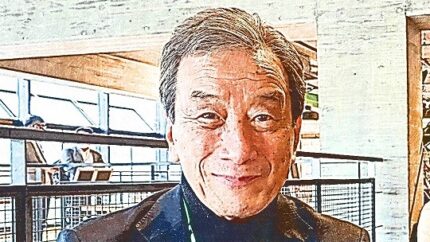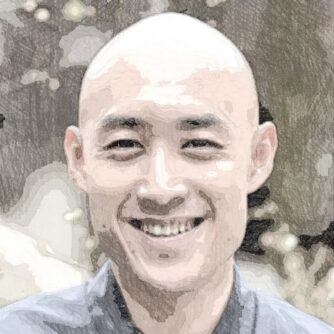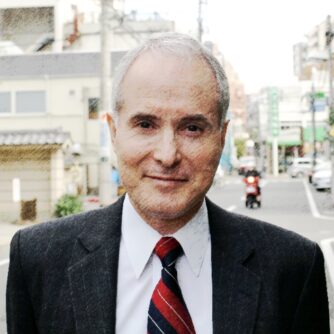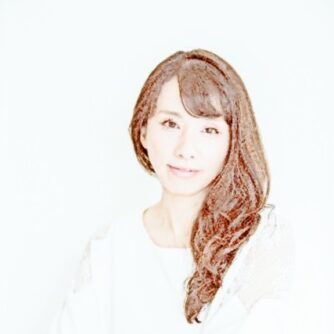Starting his career as medical practitioner, specializing in nephrology (kidney disease) , Kiyoshi’s field of activities took a big leap beyond the medical practice. At 84 years strong, Kiyoshi is one of the most globally recognized opinion leaders from Japan. His accomplishments and current activities can be seen here: https://www.grips.ac.jp/list/en/facultyinfo/kurokawa_kiyoshi/
In the 1970s when Kiyoshi was in his thirties, Kiyoshi took a leap to the United States, and by the 1980s he had found success. He lived comfortably in a house with a swimming pool. So, he was really surprised when his mentor from the University of Tokyo, his alma mater, came knocking on his door.
“Once you are out, you are out,” says Kiyoshi. That was the norm of Japan back then. The Japanese economy was booming, and “Japan as Number One” was proud to be a rising star, ranking number two in the GDP rankings.
Back in those days, doing a post doc for more than 3 years meant that you were out of the system in Japan. So, Kiyoshi never thought he would never be welcomed back to Japan and had his eyes set on the competition in his field. In addition to his medical research work, he studied extra time to obtain a license from the California Board certification to practice medicine.
In order to climb up the academic ladder in the US, obtaining a tenure was the career track. That took him from the University of Pennsylvania to the University of Southern California as an associate professor. On his tenure track, Kiyoshi bought a nice house. Then he was invited to UCLA medical school and was eventually became professor in medicine and head of a new department in nephrology in one of UCLA’s four affiliated hospitals. Life was good.
Then suddenly, his mentor from University of Tokyo arrived at his door. He said, “we need you” and didn’t leave Kiyoshi’s house till 5 a.m. University of Tokyo was lagging a bit behind the times and needed to catch up quickly to the changing world.
Kiyoshi decided to give it a try, taking leave from his position. He took a leap. But that leap took him to a position back as an associate professor.
But the medical students, residents and young medical doctors there were really smart and passionate. It occurred to Kiyoshi that he himself was in the same situation, many years ago. So, he decided to stay, “which was a crazy thing,” says Kiyoshi. His family wasn’t really pleased with this unexpected turn, either. But, after 6 years he was voted to head the clinical medical department, his alma mater. Kiyoshi felt he was “really lucky to get this back.”
But his career took another turn, with retirement. At that time, the retirement age for the University of Tokyo was age 60. Usually, after retirement from the University of Tokyo, a professor or head of department there were invited to be hospital director of some large public institution. And that was the future he saw for himself, one year before retirement. But Kiyoshi did not want to follow that path, because some instinct told him that he wanted to do something in education.
Then, Tokai University secretly approached him to invite him to be the dean of their medical school. “This was unthinkable back then,” says Kiyoshi. The school was founded in collaboration with Keio university, a prestigious private university. All faculty there were graduates of Keio medical school.
However, Kiyoshi found this offer intriguing. Back in the mid 1990s there were lots of reforms occurring in medical schools in the US, and Tokai University was known “for trying to do something.” Kiyoshi thought that it was very fortunate that they were asking him to lead those reforms.
But he had to be strategic in this job change, since the news would be a great surprise to the University of Tokyo. 2 hours prior to the announcement by Tokai University, Kiyoshi went to the dean and administrator of the medical school at University of Tokyo that he would be resigning in 3 months. Surprise and paralysis were Kiyoshi’s tactics.
It worked. However, Kiyoshi was told that because he was leaving the school on his terms, that his retirement allowance would be cut by about 25%. “I was so surprised,” says Kiyoshi, especially because the retirement allowance was so small to begin with.
When asked if he felt there were a difference between public and private universities, that sparked his concerns about how the leadership is selected at Japanese universities. (Note: Kiyoshi served as professor of the University of Tokyo Medical School from 1989 to 1996, and dean of Tokai University Medical School from 1996 to 2004)
Unlike the leadership in corporations who must answer to the stock market and outside board members, the president of Japanese universities is selected by voting of the faculty. Because the selection process is internal, there is no way to get rid of him/ her based on performance. That is why there is a fixed term for leadership in Japanese universities. “Good or bad is irrelevant,” rants Kiyoshi.
Kiyoshi believes that one of greatest chancellor in the last couple of decades is Dr. Richard Levine of Yale University. “I really admire him,” says Kiyoshi. He also adds that there must be some mechanism to value a leader so that he can extend his stay at the helm for two decades. And that is governance. Unfortunately, nothing of this sort of rigorous governance exists in the Japanese education institutions. (Note: even though boards do exist in form)
Kiyoshi often uses the Japanese phrase “tako-tsubo.” “Tako” is octopus and “tsubo” is a pot. (Note: an octopus goes inside his dwelling, the pot, and it is difficult to get it to leave, losing perspective of his surroundings.) “Is there any country in the world?” asks Kiyoshi, where well educated from universities finds work in one company, and never change to another company.
Granted, there has been some lateral movement in recent days in Japan, but it is still the exception rather than the rule. Since there is little lateral movement, inside the “tako-tsubo,” one must always obey his seniority in the rank and file. “Tako-tsubo” is the environment that gives birth to the “single-tracked elite” in Japan.
Kiyoshi used this phrase, “tako-tsubo” often when he was the chairman of the Fukushima Nuclear Accident Independent Investigation Commission. This was the first time in the constitutional democratic system of Japan that the parliament passed a new law to nominate 10 independent experts (not from government or large corporations) to investigate the government’s performance regarding a major incident.
Kiyoshi made the entire session open to public, accessed via the internet. He also provided simultaneous translation, since the global nature of this accident. At that time, there were more than 400 nuclear plants operating in the world, of which about 50 were in Japan.
“How could this happen in Japan, a country with reputation for excellence in engineering and manufacturing,” questions Kiyoshi. He felt some personal safety risk for he and his family, since many people in Japan did not want to hear scrutiny. Even though he requested protection, the government did not accommodate.
The key finding in the investigation was “regulatory capture,” an economic theory that says that instead of public interest, regulatory agencies become dominated by the industries or interests they are charged with regulating. After 9.11, the United States warned Japan twice about the potential risks of terrorist attacks on nuclear plants, “but it was disregarded, despite the risk” says Kiyoshi. “The Japanese nuclear circle knew” about potential risks in the nuclear plants.
Interest was high outside of Japan, and he was invited to speak on three world tours after the investigation was released. It has been 10 years since Fukushima, and March was a busy month for Kiyoshi. Harvard University held a three day seminar on the 10th anniversary of the Fukushima accident, and of course, Kiyoshi was asked to speak. According to him, the key word that kept on popping up was “regulatory capture.”
A nation has to protect the people, and the government cannot fail to update its regulation and to implement measures properly. “People in government knew,” says Kiyoshi, that Japan was not really implementing rules and regulation recommended by IAEA (International Atomic Energy Agency).
As an energy source for the next generation, nuclear power is perhaps necessary, and mini nuclear plants may be an option. “But Japan has to show leadership to learn from failure and disaster,” says Kiyoshi. For Japan, the focus in Japan on 3.11 may be the destruction of communities from the tsunami. But, for the world it is nuclear., and the problems are still lasting.
One problem may be that much of the information and news reported from Japan is in Japanese, and at the same time, many Japanese do not read the concerns raised by overseas because it is in English.
When Kiyoshi was the president of the Science Council of Japan, G8 summit at Gleneagles in the UK was convened, where Prime Minister Tony Blair brought to the table his agenda on African debt relief and global warming. This was the first time for the science community to make statements to G8 leaders, and it has become a routine ever since.
Kiyoshi also served as Special Advisor to Prime Minister Shinzo Abe (First Cabinet 2006-2007) and Prime Minister Yasuo Fukuda (2007-2008), and when the Hokkaido Toyako G8 Summit was convened in 2008, he led recommendations regarding a smart grid, because in Japan, regions such as Kanto and Tohoku were all divided. This was pre-3.11 which paralyzed Japan because the grid was disconnected. It is amazing that these recommendations that were made 13 years ago, and still has yet to be implemented.
It was the first time that Kiyoshi came to realize the nature of the monopoly that existed at that time. Even some parliament politicians said to Kiyoshi that they didn’t know Japanese electrical utilities are so monopolized regionally and disconnected from each other. Kiyoshi believed that “some knew it,” but were enjoying the fruits and benefits from that arrangement. “As a rule, monopoly always rots at some time. If there is an exception, let me know,” says Kiyoshi.
When asked for a message for the younger generation, Kiyoshi stressed that it is a global world. In that world, it is easy to recognize the strengths of Japan, but it is often quite difficult to recognize the weakness of your country relative to the world.
That is why when one matures into an adult during the college years, it is important to take a leap and go abroad. Even one year. Go anywhere outside of Japan, whether it is working at an NGO, volunteering, perhaps just travelling, or maybe studying at some college abroad.
“Go to Africa, maybe India,” encourages Kiyoshi. Then one will likely discover a completely different perception of poverty. And because it is a connected world, from wherever you are, you can see what is going on in Japan, including the weakness of Japan, and recognize things that Japan can do for the world. “It is a healthy sense of patriotism (not narrow nationalism,” says Kiyoshi.
In his welcoming speech to the entering class at Keio SFC (Shonan Fujisawa Campus), originally established by the great scholar Yukichi Fukuzawa, who promoted “Gakumon No Susume” (The Promotion of Study), Kiyoshi promoted “Kyugaku No Susume” (The Promotion of Leave of Absence). “Take a leap!” encourages Kiyoshi in his speech. Getting credit or not is irrelevant. It is the experience that should be valued, gaining new perspectives about Japan.
After his speech, more than 20% of the entering class eventually went abroad for a year or so. The faculty was thrilled. The students came back as changed persons. 2 years later, he made a similar speech for the entering class at the University of Tokyo. But very few went abroad, afterwards.
However, there is a small number of students that are using University of Tokyo, the pinnacle of higher education in Japan, as a back-up plan. These young men and women start in the spring semester at the University of Tokyo, but in the autumn semester they go to school abroad, like Harvard or Stanford.
One last message from Kiyoshi to the world. “There are many young eager stars in Japan. Come work with us, come study with us.” We live in a connected world, and in that world, we cannot hide anything.



